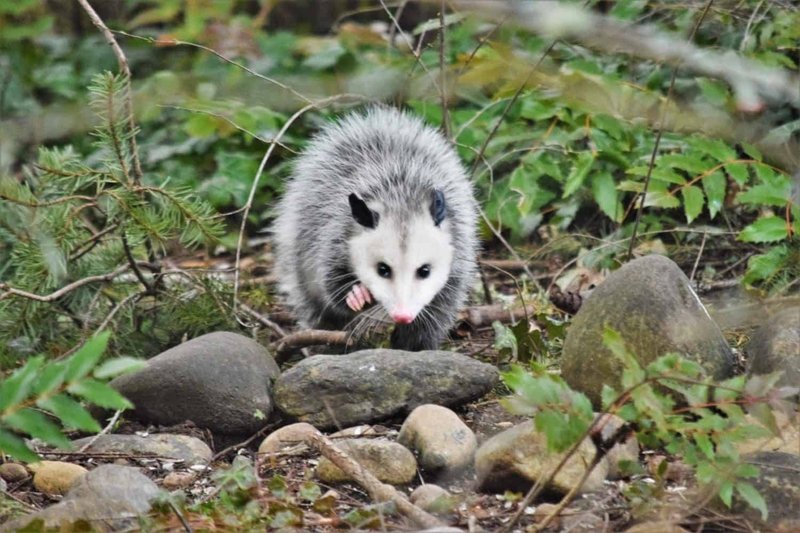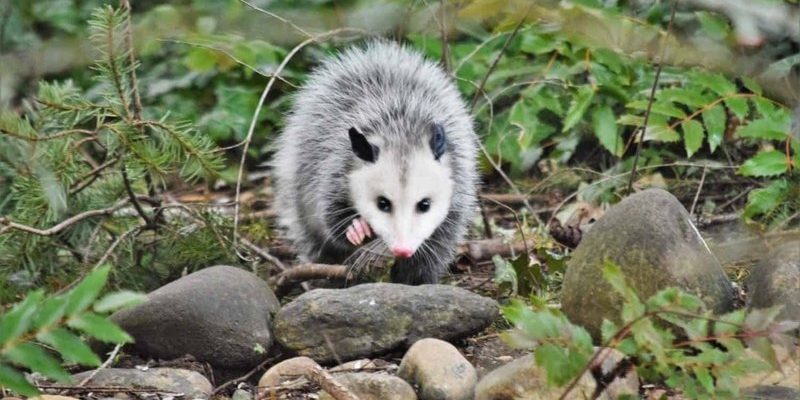
To put it simply, possums are omnivores. They eat just about anything they can find, which makes them incredibly adaptable. Imagine a friend who can whip up a meal from whatever leftovers are in the fridge. That’s a bit like how possums operate in the wild. Their meals range from fruits and veggies to insects and small animals. Plus, they have some interesting hunting strategies that help them thrive in different environments.
Curious about how they manage to stay fed in the wild? Let’s explore their diet and hunting techniques, painting a picture of what makes the possum a true survivor.
What Do Possums Eat?
Possums are known for their flexible diet. They aren’t picky eaters, which is a significant advantage in the wild. Their diet can be roughly categorized into a few main groups:
- Fruits and Vegetables: Possums love fruits like apples, berries, and bananas. They also munch on leafy greens and other vegetables, often foraging these in gardens or wooded areas.
- Insects: Various insects, such as beetles and crickets, are favorites. They’re a good source of protein and can be found almost anywhere.
- Small Animals: If they’re feeling particularly adventurous, possums might hunt small mammals, birds, or even frogs. This demonstrates their opportunistic nature.
- Leftovers: Let’s not forget about human food! Possums are not above rummaging through trash cans for scraps, making them excellent recyclers of leftover meals.
This omnivorous diet helps them adapt to different habitats, from rural areas to bustling cities. In fact, they often thrive in suburban environments where food sources are plentiful. It’s like having a buffet, and possums are ready to take full advantage!
Hunting Techniques of Possums
When thinking about how possums hunt, it’s essential to note that they’re not your typical predators. Instead of actively chasing down prey like a cat or dog, possums rely on stealth and patience. Here’s how they go about it:
- Foraging: Most of the time, possums forage rather than hunt. They slowly move through their environment, searching for food while using their keen sense of smell to detect ripe fruits and insects.
- Ambush: If a possum comes across small animals, they might use a technique called ambush hunting. They’ll stay still and hide in foliage until their prey comes close enough to catch.
- Scavenging: Possums are experts at scavenging. They often eat from carcasses left by other animals, taking advantage of what they can find without having to chase down a meal.
These techniques highlight their adaptability. Possums aren’t built for speed or strength; instead, they use their cleverness to gather food effectively. It’s a bit like being the quiet friend who knows all the best spots for snacks and keeps an eye out for opportunities.
The Role of Possums in the Ecosystem
Possums play a significant role in their ecosystems, acting as both predator and prey. You might wonder, how does this all tie together? Their varied diet helps control insect populations and contributes to seed dispersal, which is vital for plant growth.
When possums eat fruits, they help spread seeds through their droppings, promoting biodiversity in their habitats. This natural process aids in the health of forests and gardens, making possums essential allies in maintaining ecological balance.
Moreover, as prey for larger animals, possums provide a food source for owls, foxes, and other predators. Their presence in the food chain ensures that ecosystems remain dynamic and diverse. So, while they might seem like insignificant critters, possums are crucial players in their environments.
Behavioral Adaptations for Survival
Possums have some unique behaviors that help them survive in the wild. From their remarkable ability to play dead to their exceptional climbing skills, these adaptations make them fascinating creatures.
One of the most well-known tricks is playing possum. When faced with danger, a possum can enter a state of shock that mimics death. This reaction can confuse predators, giving them a chance to escape once the threat is gone. It’s like a clever little act to avoid becoming someone’s dinner!
Additionally, possums are excellent climbers. They often retreat to trees or high ground when threatened. This skill not only keeps them safe from ground predators but also allows them to access food sources that are out of reach for many other animals.
Challenges in Finding Food
Despite their adaptability, possums face challenges when it comes to finding food. Environmental changes due to urbanization and climate change have impacted their natural habitats. Here’s what they’re up against:
- Habitat Loss: As cities expand, possums lose access to their natural foraging grounds, making it harder for them to find food.
- Pollution: Contaminated food sources can pose health risks. Rummaging through trash cans exposes them to hazardous materials.
- Competition: As urban areas grow, possums often compete with other wildlife, such as raccoons and squirrels, for food.
These challenges highlight the importance of conservation efforts. By preserving their habitats and providing suitable environments, we can help ensure that possums continue to thrive.
Possums might not get the appreciation they deserve, but their diets and hunting strategies reveal their adaptability and resourcefulness. From foraging for fruits to scavenging leftovers, these little marsupials are true survivors. Their role in the ecosystem is vital, serving as both predators and prey.
As we learn more about possums, we can appreciate their contribution to our world. Understanding their behaviors and challenges helps us recognize the importance of protecting their natural habitats. So, the next time you spot a possum in your yard, remember: it’s not just a critter; it’s a little warrior navigating the complexities of nature.

